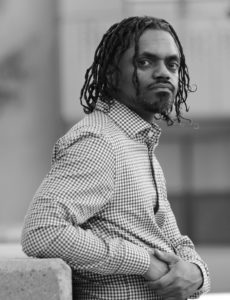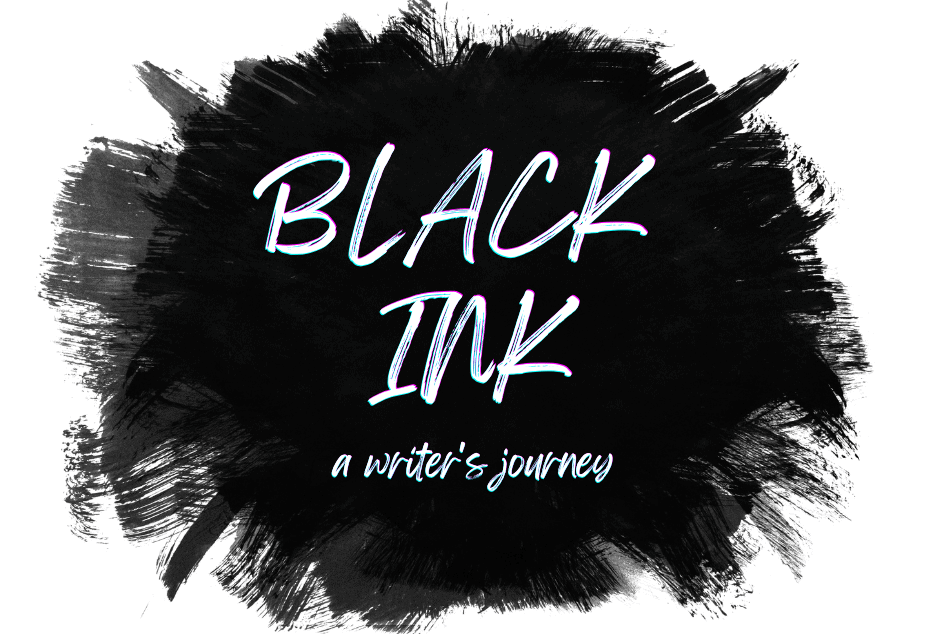It was once illegal for me to be here. Illegal for my words to be read, for me to write them, and for me to comprehend them. An actual crime worthy of shackles, imprisoned next to cold-blooded killers. Guess it was fitting since a Black pen murders the status quo every time it touches a page.
The racist system at play in America was fully aware of the infinite possibilities present in the written word. A language my ancestors never asked to learn. Yet, under flashlights and retribution, they manufactured a curiosity in what was forbidden. Risked their lives for the opportunity to see what damage manipulating this new language could really do. They found the weapon that could defeat their oppressors and looked to arm their loved ones.
Generations later, I stand here, armed – and grateful.
Toni Morrison once said she wrote her first book because she wanted to read it. I wrote my first book because I wanted to teach it. So, with my book in tow, and a room full of Black male high school sophomores, I educate and listen. Raw feedback leaves their lips and my book elicits conversation. Continuous back and forth, engaging in found knowledge derived from varying households and past classrooms, they show me what my educator-writer vacillation produces in real time.
This is my activism. When they see me, they see them, and what they need to see is not just a finished product, but the emotional sacrifice that is such an undertaking. In me, they can witness what is possible.
I did not have to sneak around to learn how to read and write like Frederick Douglass did. I have not had to write letters pleading for the understanding of white clergymen like Dr. Martin Luther King, Jr. I have not needed to self-educate through countless hours of reading in a prison library like Malcolm X. I have not had journalists ask me to satisfy the white male gaze that hovers over literature by including more white characters like Toni Morrison. I have simply needed to show up in creative and educational spaces armed with my ancestors’ intellectual weaponry. Their blood flows through mine, their spirit galvanizes my own. I am them and cannot fail.
Writing saved my life. Not that it was in mortal danger, but it was in emotional and spiritual peril. I needed somewhere to feel safe, to feel necessary, and the pen and the page have always welcomed me with open arms. Whether it was journalism, screenwriting, poetry, or prose, I always had an escape.
In the beginning, it was through the words of others. The likes of R.L. Stine, Walter Dean Myers, Stephen King, and Sharon Draper provided me with paperback books to put in my back pocket or backpack in elementary and middle school. I graduated to Eric Jerome Dickey, Omar Tyree, Terry McMillan, and Sister Souljah in high school. But once I landed at Hampton University for undergrad, I shifted into the world of heightened Black awareness and saw myself leaving a lot of fiction behind and gravitating towards the truth. James Baldwin became my literary father. Carter G. Woodson, W.E.B. Dubois, Angela Davis, bell hooks, and others found their way into my consciousness as I collected their works and aggressively fed my adulthood with their nourishment.
I was becoming the person necessary to do the work that I do. Without them, without the journey, my words would not be before you now, in a white world written in Black ink.
A Black pen without a sense of history is an oxymoron. For the pen is how we converse with our ancestors using the language they fought for us to safely use. With no native tongue at our disposal, we must weaponize what was weaponized against us and tell our stories, control our narrative and represent for those who fought for us to be seen, heard – and read.
So, bleed that Black ink. Forever and always.
For more, please join us on Facebook….

R. Preston Clark is a High School Humanities teacher at Urban Prep Charter Academy for Young Men in Chicago. Born and raised in San Diego and a graduate of Hampton University, Clark fights for safe spaces for Black men – young and old – to improve their emotional and mental health. Flawed, transparent and accountable for his actions, Clark’s growth through his own mistakes has charged him to lead others through literacy, education and self-consciousness.
Clark earned an Honorable Mention in the 28th Annual Writer’s Digest Self-Published Book Awards and was a Voices of Color Fellow at the 2021 Martha’s Vineyard Institute of Creative Writing. He also serves as Director of Education for Empowering Mentorships and is an alum of the RISE San Diego Urban Leadership Fellowship Program.





